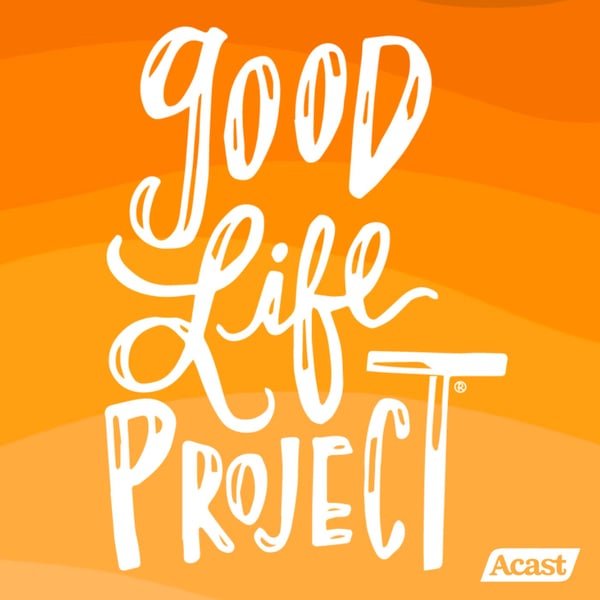Why Secrets Wreck Us: a Science-backed Practice to Reveal and Heal | James W. Pennebaker
Good Life Project
Jonathan Fields / Acast
4.6 • 3.2K Ratings
🗓️ 1 May 2025
⏱️ 66 minutes
🧾️ Download transcript
Summary
Unleash the transformative power of your words with pioneering researcher James W. Pennebaker. Discover how his simple, expressive writing method can improve your mental and physical health, provide self-insight, and even detect the hidden psychological undercurrents influencing your life and relationships.
In Opening Up by Writing It Down: How Expressive Writing Improves Health and Eases Emotional Pain, Pennebaker reveals the profound healing potential within us all.
You can find Jamie at: Website | Episode Transcript
If you LOVED this episode you’ll also love the conversations we had with Nicole Sachs about her approach to journaling for chronic pain.
Check out our offerings & partners:
- Join My New Writing Project: Awake at the Wheel
- Visit Our Sponsor Page For Great Resources & Discount Codes
Hosted on Acast. See acast.com/privacy for more information.
Transcript
Click on a timestamp to play from that location
| 0:00.0 | 22% of women and 11% of men reported having had a traumatic sexual experience prior to 17. |
| 0:07.0 | And the people who endorsed it were more likely to have been diagnosed with cancer, high blood pressure, ulcers. |
| 0:14.0 | That started to be wondering why. |
| 0:17.0 | Sexual traumas were somewhat unique in that they were the kind of trauma that people were most likely to keep secret. |
| 0:24.6 | James Pennebaker is Professor Emeritus of Psychology at the University of Texas at Austin. |
| 0:29.6 | The author of over 300 scientific articles and eight books, he has opened up groundbreaking research, |
| 0:35.6 | on expressive writing and its profound impact |
| 0:38.2 | on everything from anxiety and depression to chronic pain, disease, inflammation, grief, and well-being. |
| 0:44.5 | But having a trauma and then keeping it secret from others, and it didn't matter what the trauma was, |
| 0:50.0 | exacerbated the health risks to the person. |
| 0:57.4 | And this made me wonder if keeping a secret so bad for you, what if we brought people in the laboratory and had them write about it or talk about it? |
| 1:03.7 | Would that improve their physical health? |
| 1:14.5 | Just really excited to dive into the work that you've been doing. |
| 1:21.4 | I'd love to jump in on the expressive writing side and eventually work our way around in the conversation too. |
| 1:27.2 | Some of the more current, really just like examining of language and the tool. So let's start at the beginning. |
| 1:29.9 | If we take a step back in time, I'm so curious how you first become interested in the connection |
| 1:36.2 | between writing and well-being. I was never particularly interested in writing well-being early in my |
| 1:42.8 | career. In fact, I had bounced around in many areas, |
| 1:47.4 | and I went to graduate school because I was interested in essentially the mind-body problem |
| 1:53.3 | and how psychological factors can influence physical health. And I was actually writing a book on some of my early work on physical symptoms, |
| 2:04.4 | how we come to know, how we feel. And I thought, you know, it would be interesting to come up |
| 2:09.7 | with a questionnaire that could get a sense of what kind of people report physical symptoms. |
... |
Please login to see the full transcript.
Disclaimer: The podcast and artwork embedded on this page are from Jonathan Fields / Acast, and are the property of its owner and not affiliated with or endorsed by Tapesearch.
Generated transcripts are the property of Jonathan Fields / Acast and are distributed freely under the Fair Use doctrine. Transcripts generated by Tapesearch are not guaranteed to be accurate.
Copyright © Tapesearch 2025.

